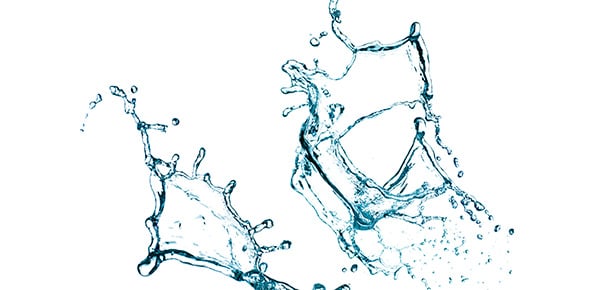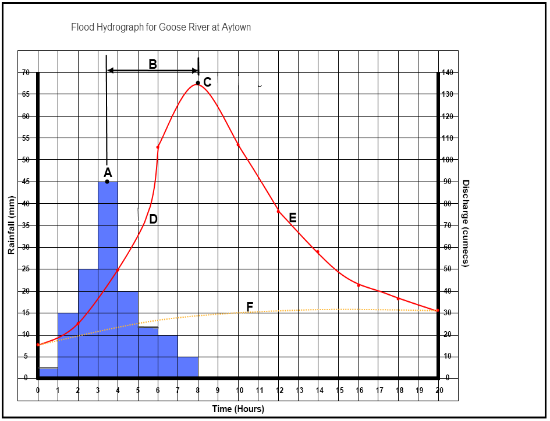Freshwater Quiz (5 Questions)
-
What is freshwater?
-
Water that makes up 3% of Earth's water composition
-
Water that is cold
-
Both A and B
-
None of the above
-
The 'Freshwater Quiz' explores key aspects of Earth's water composition, focusing on the distribution and characteristics of freshwater and saltwater. It assesses understanding of the water cycle and environmental science, enhancing knowledge crucial for academic and practical applications.

Quiz Preview
- 2.
What percentage of FRESHWATER is melted and available to us?
-
60%
-
75%
-
3%
-
None of the above
Correct Answer
A. 3%Explanation
Only 3% of freshwater is melted and available to us. This means that out of the total freshwater on Earth, which includes sources like rivers, lakes, and underground aquifers, only a small fraction is in a form that can be easily accessed and used by humans. The majority of freshwater is locked in glaciers, ice caps, and underground, making it inaccessible for direct use. Therefore, the answer is 3%.Rate this question:
-
- 3.
Where is most of our freshwater?
-
Trapped between mountains
-
Trapped in glaciers and ice caps
-
In an ancient and sacred pond in an unknown place
-
None of the above
Correct Answer
A. Trapped in glaciers and ice capsExplanation
Most of our freshwater is trapped in glaciers and ice caps. These massive bodies of ice contain a significant amount of the Earth's freshwater resources. As temperatures increase and these ice formations melt, the freshwater is released into rivers, lakes, and other water bodies. Therefore, the majority of our freshwater is stored in these frozen reservoirs, making them crucial for maintaining global water supplies.Rate this question:
-
- 4.
What percentage of SALTWATER is there in Earth's water composition?
-
70%
-
3%
-
97%
-
100%
-
None of the above
Correct Answer
A. 97%Explanation
97% is the correct answer because the Earth's water composition is primarily made up of saltwater, which includes the water in the oceans and seas. Only a small percentage of Earth's water is freshwater, found in rivers, lakes, and underground sources. Therefore, the majority of Earth's water, approximately 97%, is saltwater.Rate this question:
-
- 5.
What is freshwater?
-
Water that makes up 3% of Earth's water composition
-
Water that is cold
-
Both A and B
-
None of the above
Correct Answer
A. Water that makes up 3% of Earth's water compositionExplanation
Freshwater refers to water that is not salty or brackish, and is safe for consumption. It includes water from sources such as rivers, lakes, and groundwater. The given answer, "Water that makes up 3% of Earth's water composition," accurately describes freshwater as it highlights that freshwater accounts for only a small percentage of the total water on Earth. This answer distinguishes freshwater from the vast majority of water on the planet, which is found in oceans and is too salty for most uses.Rate this question:
-
- 6.
Where is most of our freshwater?
-
Trapped between mountains
-
Trapped in glaciers and ice caps
-
In an ancient and sacred pond in an unknown place
-
None of the above
Correct Answer
A. Trapped in glaciers and ice capsExplanation
Most of our freshwater is trapped in glaciers and ice caps. These massive bodies of ice contain a significant amount of the Earth's freshwater resources, which are frozen and stored in these icy formations. As the glaciers and ice caps melt, they release freshwater into rivers, lakes, and other water bodies, providing a vital source of freshwater for various ecosystems and human consumption. Therefore, the correct answer is "Trapped in glaciers and ice caps."Rate this question:
-
- 7.
What percentage of SALTWATER is there in Earth's water composition?
-
70%
-
3%
-
97%
-
100%
-
None of the above
Correct Answer
A. 97%Explanation
The correct answer is 97% because the majority of Earth's water is found in the oceans, which are composed of saltwater. This accounts for approximately 97% of the Earth's water composition. The remaining 3% is freshwater, which includes water in rivers, lakes, glaciers, and underground sources. Therefore, the percentage of saltwater in Earth's water composition is 97%.Rate this question:
-
- 8.
BONUS: Where is our saltwater found?
-
In oceans
-
In ponds
-
In glaciers and ice caps
-
In oceans and (some) lakes
-
None of the above (If you said this answer for the past 5 questions, you might want to study.)
Correct Answer
A. In oceans and (some) lakesExplanation
Saltwater is found in oceans and some lakes. While the majority of saltwater is found in oceans, there are also some lakes that contain saltwater. This is due to various factors such as the presence of underground salt deposits or the location of the lake in coastal areas where saltwater can enter through channels or underground sources. Therefore, the correct answer is "In oceans and (some) lakes."Rate this question:
-
- 9.
What percentage of FRESHWATER is melted and available to us?
-
60%
-
75%
-
3%
-
None of the above
Correct Answer
A. 3%Explanation
Only 3% of freshwater is melted and available to us. This is a small fraction of the total freshwater on Earth, which is primarily locked in ice caps and glaciers. The remaining 97% is not easily accessible as it is either underground or in the form of saltwater in oceans and seas. Therefore, it is crucial to conserve and manage this limited freshwater resource effectively.Rate this question:
-
- 10.
BONUS: Where is our saltwater found?
-
In oceans
-
In ponds
-
In glaciers and ice caps
-
In oceans and (some) lakes
-
None of the above (If you said this answer for the past 5 questions, you might want to study.)
Correct Answer
A. In oceans and (some) lakesExplanation
Saltwater is found in oceans and some lakes. Oceans, being vast bodies of saltwater, contain the majority of the Earth's saltwater. However, there are also some lakes that have high salt concentrations, such as the Dead Sea or the Great Salt Lake. These lakes have high levels of salt due to factors like evaporation and limited freshwater inflow. Therefore, saltwater can be found in both oceans and certain lakes.Rate this question:
-
Quiz Review Timeline (Updated): Mar 22, 2023 +
Our quizzes are rigorously reviewed, monitored and continuously updated by our expert board to maintain accuracy, relevance, and timeliness.
-
Current Version
-
Mar 22, 2023Quiz Edited by
ProProfs Editorial Team -
Apr 18, 2015Quiz Created by
Ashlanier
Fresh Water Notes QUIZ
The Fresh Water Notes QUIZ assesses understanding of freshwater availability, river basins, watersheds, and eutrophication. It explores key hydrological concepts, enhancing...
Questions:
5 |
Attempts:
194 |
Last updated:
Mar 17, 2023
|
Water System, Drainage Basins & Flooding - OPEN
Quiz to assess recall and understanding of key terms & concepts covered in the first topics of Freshwater: Issues & conflicts
Questions:
25 |
Attempts:
240 |
Last updated:
Mar 19, 2023
|
6th Grade: What Do You Know About Earth Science?
Rivers are the links in the water cycle that return water from the atmosphere to the seas. They begin in upland areas and flow downhill, affecting the landscape around them....
Questions:
10 |
Attempts:
279 |
Last updated:
Nov 13, 2024
|
Can Your Facts About Water Help You Out?
Do you even know anything about the one liquid we drink the most on Earth? In fact, it is up to 70% of the Earth's total composition. Take this to quiz and let's see if...
Questions:
10 |
Attempts:
371 |
Last updated:
Mar 22, 2023
|
Quiz On Hydrology
Hydrology is a branch of science that deals with the study of water on Earth. Get your knowledge and take this quiz. The quiz contains various questions about hydrology which...
Questions:
10 |
Attempts:
3086 |
Last updated:
Aug 19, 2023
|
Percentage Of Ground Water Quiz
Take this quiz and learn more about percentage of ground water and Accessible sources of freshwater.
Questions:
7 |
Attempts:
267 |
Last updated:
Mar 22, 2023
|
 Back to top
Back to top








